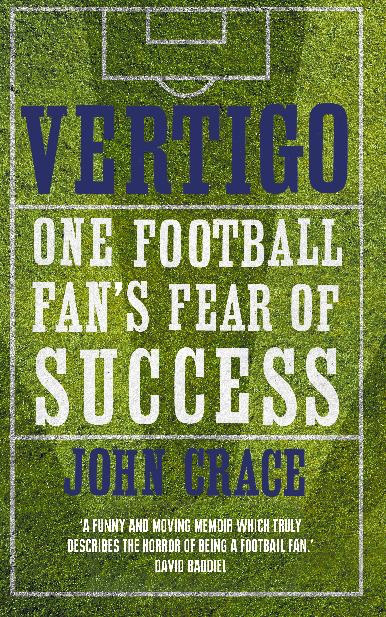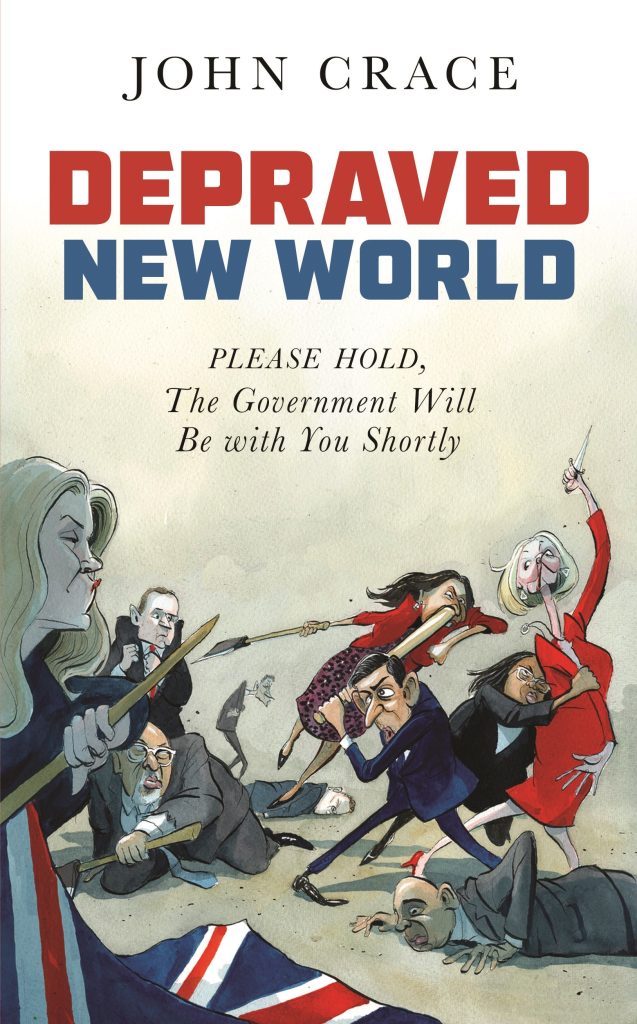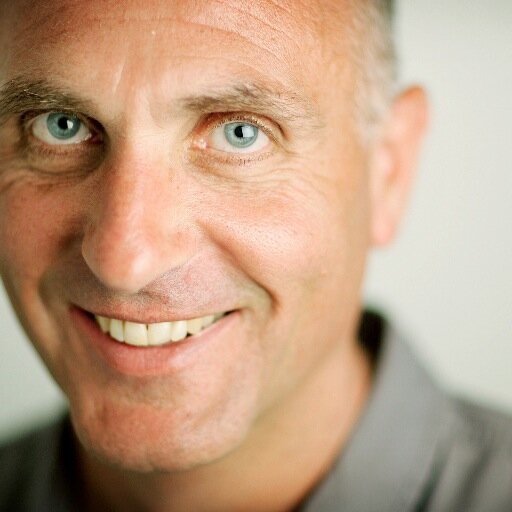Taking the Lead: A Dog at Number 10 is John Crace’s latest book. It’s a satirical memoir told through the eyes of Crace’s beloved cockapoo, Herbie. Crace has been the Guardian’s political sketch writer for the last ten years and is one of the paper’s most loved, and funniest, columnists. He has produced plenty of other books on topics ranging from cricket and football, TV, literature and politics, and also, himself. In 2023, his collection of Guardian columns, Depraved New World, was a Waterstones Politics Book of the Year, and in January 2024 he was awarded an honorary doctorate by Bath Spa University in recognition of his literary satire.
Taking the Lead: A Dog at Number 10 allows Crace to tell us all the stories and fill us in on all the gossip that we might have missed about the revolving door that is the centre of the UK government. If the last few years have taught us anything, it’s that we’re going to need a sense of humour, and Crace, once again, delivers plenty of punch from the relative safety of the viewpoint of a dog that happens to have been hanging around Downing Street.
If UK politics isn’t your thing and you don’t know who some of the stars of the book are; namely Sadiq Khan, Ed Miliband, David Cameron, Theresa May, Boris Johnson, Liz Truss, Rishi Sunak and Keir Starmer, you’re in for a good laugh, a crash course in British politics, and a reflection of the ridiculousness of governments around the world. If however, like most of Crace’s fans, these names haunt your nightmares, you’ll want to catch up on the canine perspective to finally make sense of it all. The late Queen also gets a look in so there’s also a bit of universal appeal.
Irresistible led Crace out the back of Adelaide Writer’s Week this year to find out where’s left for satire to go in the current political climate, and who has been his favourite British PM to write about.
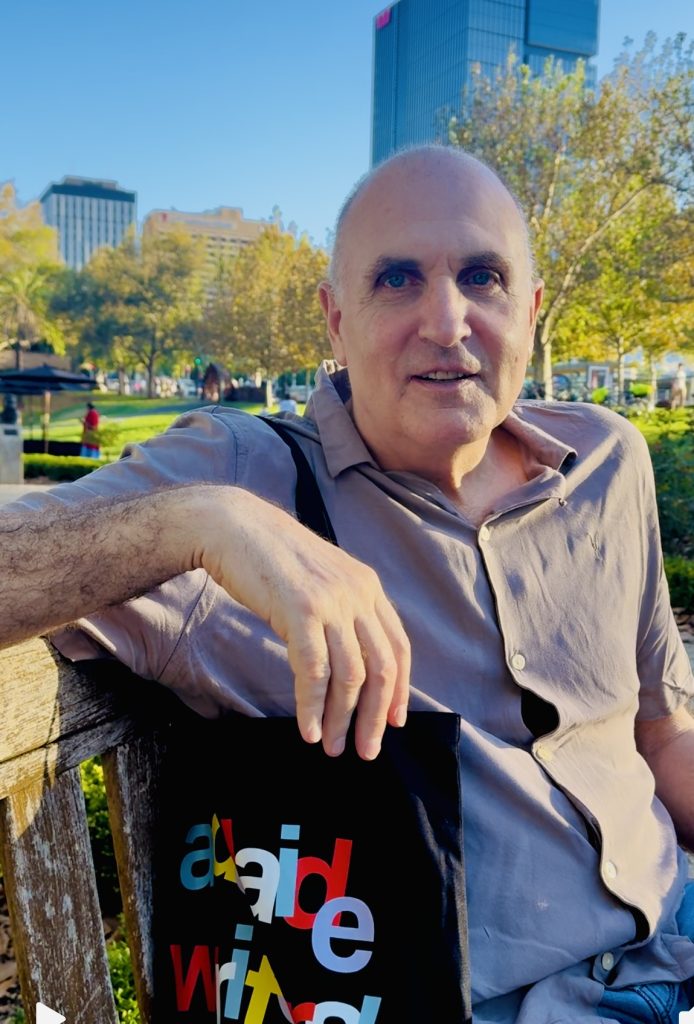
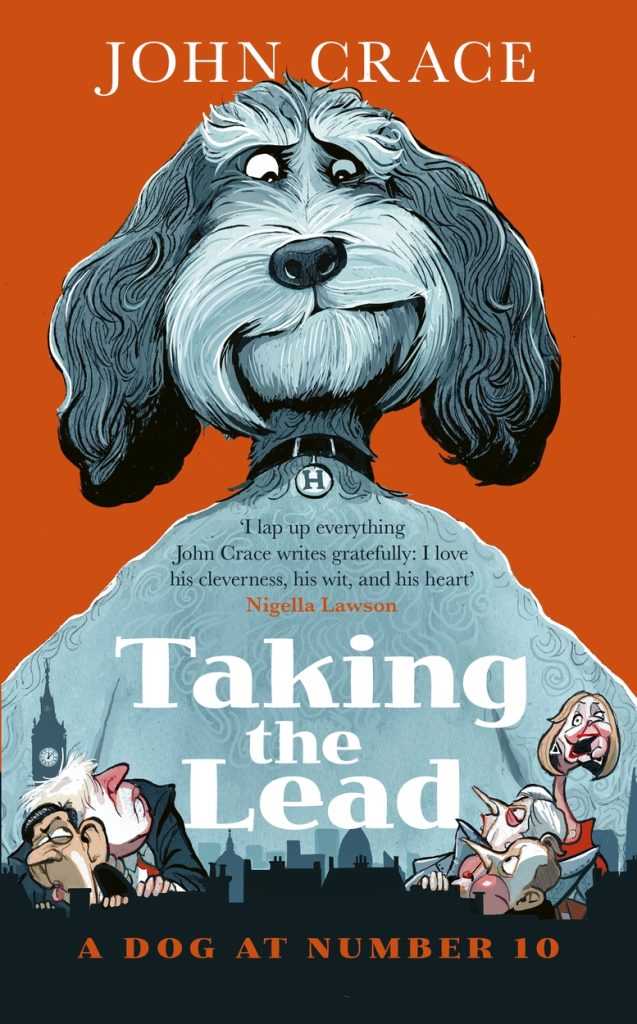
So have you been to this festival before? Have you been in Australia much?
This is my fourth visit to Australia. I came to Adelaide Festival 13 years ago, when The Guardian UK set up Guardian Australia. They thought it would be a good idea to send four of us out here. It was basically a bit of a jolly. We came and had a great time, wrote a whole load of stuff for the paper. It was fantastic.
Do you always have a great time down under ?
The first time I came was in 1990, when my wife and I were thinking of having a child, and we wanted one last adventure before we had twenty years of brutal childcare, so we came to Melbourne, Sydney and Cairns. A year later I came back because I was writing a cricket book, and the cricket World Cup was in Australia.
So would say you love Australia ?
Oh yes.
Which is your go-to literary festival?
My favourite is the Hay festival in the UK. I’ve been every year for the last 15 years. They keep inviting me back as I can fill a tent!
Real life politics have moved into areas where satire used to live. As a political sketch writer and satirist, is it becoming harder to go beyond what is already happening, and to find a funny angle?
All you can do is keep pointing out the fact that this is not normal. A lot of politicians are trying to normalise Donald Trump, and make out that really he’s got a point, and it’s not that crazy to think you can set Gaza up as the riviera of the Middle East, for example. It’s all bonkers.
It is bonkers but he’s the President?
Satire basically has to raise its game. It is a parallel universe. We don’t have to take this for granted and we don’t have to accept it. That’s what I think my job is- to keep saying that.
With the benefit of hindsight, we can see cycles through history, when things tend to get better after they have been really bad. Do you think we’re some way through a bad cycle, and everything will be alright in the end, or do you think this is something else?
I worry about the rise of populism everywhere. In the UK we have Reform and Nigel Farage. He was always the outsider saying, ‘Everything is shit and I can make it better,’ but really he has no idea.
Those kinds of people used to be outsiders but now they’re in the centre of things?
Yes that’s right. Now they’re the mainstream.
Is that more of a failure of politics do you think, or the expression of grass- roots feelings?
I think it’s just reflects the mood of discontent and that people feel let down. The system doesn’t work for most people.
Do you think the groundswell of discontent will find another outlet other than populism?
It depends whether anyone is going to get round to doing anything about it. In the UK in the last fifteen years, the rich have got a lot richer and the cost of living crisis has really affected people on low incomes. They are understandably pissed off. Nothing that Kier Starmer is doing at the moment is going to improve their lot. Which concerns me. That is his job.
You been at the Guardian for years. How did you get your first job there?
I started freelance writing in my 30s, and I just went where the work was. Back in the early 90s there was a lot of work on the education desk at The Guardian, as that was pre-internet, and the paper had a big education section as they sold loads of job adverts off the back of it. They didn’t have enough people to write it all. That’s where I cut my teeth. I gradually manoeuvred my way around the building. I wrote features for The Independent and The Evening Standard as well. I ended up writing the sketch at The Guardian.
Did you imagine you’d end up doing the sketch for so long?
When I took over, I thought it’s a niche job, and one I was happy to do, as I’m interested in politics and I’m interested in satire. But I thought it wouldn’t be a mainstream thing. Because of Brexit, everyone in the UK suddenly became politicised. And my column became a big deal. There have been times when I think, ‘Can I satirise this? Am I just a transcription service?’ But you just keep going. The country will die or survive regardless of what I write, but I do hope my work gives people some enjoyment.
Do you have a favourite politician you love to sketch?
Every politician offers something, even the people that you don’t think are going to offer up that much. I remember when Theresa May took over in the UK, I thought, ‘God, how am I going to deal with someone this boring?’ But I ended up calling her the Maybot and it took off. I loved sketching Liz Truss. That was just mad. You didn’t know what was going to happen one day to the next.
Journalistic integrity is not only under threat but constantly called into question. How do you tackle that skirting around comedy?
I do think that truth matters. In the sketches I want to be funny and entertaining, but at the heart of every piece there has to be an essential truth. It should matter and it’s important. It’s another way of holding leaders to account. If it’s just froth it’s not that durable nor meaningful.
Is there anyone else doing political sketches at The Guardian or elsewhere that you see coming up?
I’m definitely not training anyone. I don’t want to train myself out of a job. But ultimately, no writer is irreplaceable. It’s gutting, as we all like to think we’re special. When I do retire from the sketch, which won’t happen for centuries, someone will take over, and I suspect they’ll do it differently. And I’m sure people will come to love them too.
Do you think of yourself as a Londoner?
I’ve lived in London for the best part of 50 years, so I think I can now call myself a Londoner. I actually grew up in Wiltshire, and my Dad was a vicar there. Wilshire was no place to grow up. I didn’t feel like there was anything going on, there was no public transport, nowhere to go, I didn’t really have any friends. I kind of felt my life started when I went to University.
What did you study?
I did politics at the University of Exeter and then a postgrad at the LSE.
What advice would you give to a student or anyone trying to break into journalism
Just start writing. Try and find anyone that will publish you. Student paper. Anything. Just go for it!
